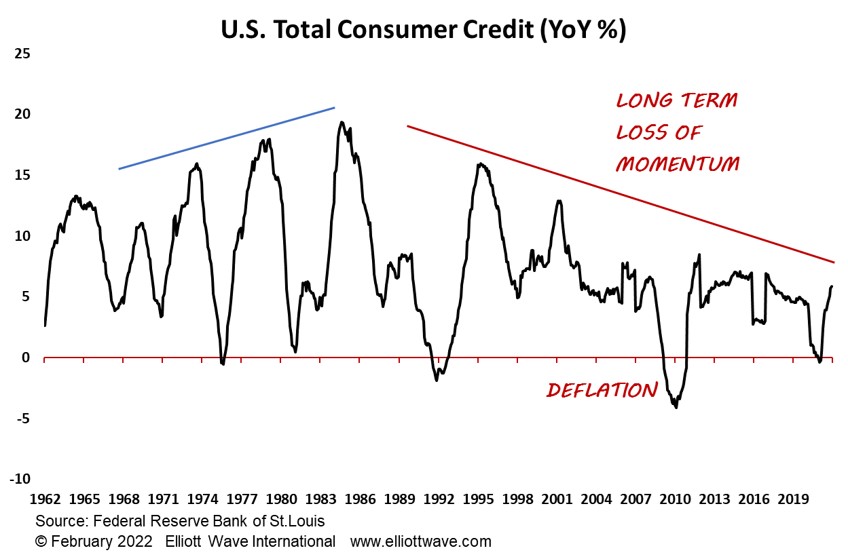Record Debt, but Slowing Momentum Points to Deflation
U.S. stats point to a long-term loss of pizazz.
Global debt is nearly $300,000,000,000,000 (that’s $300 trillion) and over 350% of global gross domestic product (the size of the world’s economy). This is the main reason why many economists contend that the central banks cannot hike interest rates back to what once seemed normal last century. The global economy would simply keel over if the cost of servicing its gigantic debt rose too much.
This week, statistics were released for U.S. consumer credit. Total U.S. consumer debt at the end of 2021 was $15.6 trillion, a full $1 trillion higher than 2020. In monetary terms, the last quarter saw the biggest rise in debt since 2007, and it has mainly been driven by mortgages thanks to the housing market frenzy.
However, looking at the momentum of debt growth provides an interesting insight. The chart below shows the annualized change in U.S. consumer credit from the 1960s. Notice that the peaks in this momentum measurement were getting higher up until the 1980s. Although debt in monetary terms has ballooned since then, looking under the hood reveals that the rate of growth has been very gradually losing speed.
Debt can be a good thing. If you borrow money to invest in a factory and the output of that factory then pays off the loan, it is considered to be productive debt. Or, if you borrow to buy a car and that car is used for taking you to your place of work. Unproductive debt, though, is when you borrow to consume and there is no income stream coming from what the debt is used for. A. Hamilton Bolton, founder of the Bank Credit Analyst research service and Elliott Wave Principle aficionado, studied the history of depressions in the U.S. and found that they all had one thing in common – excessive unproductive debt.
This chart is a clue that the debt bubble in the developed world has grown over the last 20 years due to excessive unproductive debt. It’s a sure sign that the long-term loss of momentum is very probably pointing towards debt deflation in the future.

[ad_2]
Source link


